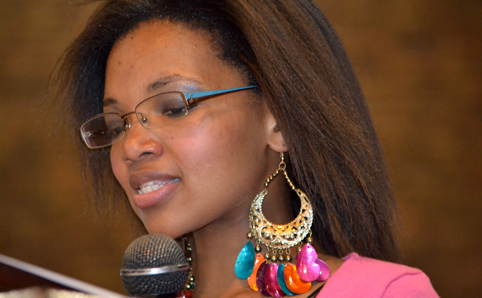Latest News Archive
Please select Category, Year, and then Month to display items
10 March 2022
|
Story Anthony Mthembu
|
Photo Unsplash
 The No Student Hungry team gearing up to start distributing food parcels to the selected students.
The No Student Hungry team gearing up to start distributing food parcels to the selected students.
The UFS is one of the many institutions of higher learning where food insecurity is an active issue. However, the
No Student Hungry Programme is one of the initiatives launched at the university to assist in fighting food insecurity at the institution.
The purpose of the programme
Since its inception in 2011, the initiative has assisted many students in acquiring a healthy meal. Additionally, the Food Environment Office also hands out food packages, so that students can continue to achieve academically. “We are trying to develop a healthy environment for students and make it easier for them to have a nice and healthy meal,” stated Annelize Visagie, who heads the Food Environment Office at the UFS. The Food Environment programme is spread out on all three campuses, each with its own facilitators. Furthermore, the programme mainly caters for students who are not funded by the National Student Financial Aid Scheme (NSFAS) but who are excelling academically. The abovementioned students apply for assistance online, and a list is then drawn up of students who receive assistance for the year.
Alternative solutions to keep the initiative running
On the Bloemfontein Campus, the No Student Hungry Programme will be catering for 200 students in the 2022 academic year, assisting them with a daily nutritious meal. Additional food parcels are also handed out to provide further assistance. “We give food parcels to the students on the list every Tuesday and Thursday at the Thakaneng Bridge,” Visagie highlighted. However, she argues that catering for the student population through this programme can be a challenge, as the demand for assistance is growing rapidly and the ability to assist is limited. The programme relies on partnerships and sponsors to assist the student body. In fact, the coordinators of the programme currently have a memorandum of understanding with Tiger Brands according to which they deliver around 100 food parcels for distribution.
In addition, the coordinators have put in place alternative measures to ensure that they can provide more food to students. “The
Kovsie Act Office, in partnership with the
Department of Sustainable Food Systems and Development, has started a food garden where healthy and nutritious produce are grown, in order to add value to the distribution,” she indicated. Although the programme can only assist to a point, students who are in desperate need of assistance are never turned away. In fact, the
Social Support Unit at Thakaneng Bridge usually assists students with food vouchers for a maximum of four days.
A commitment to teaching healthy eating habits
The programme is not only committed to curbing food insecurity, but also to ensuring that students have a healthy and balanced diet. As such, a booklet is being issued by the
Department of Nutrition and Dietetics in collaboration with the Department of Sustainable Food Systems and Development, which contains ways in which students can make a healthy meal using some of the ingredients offered in the food parcels.
“We want to teach students how to eat healthy in the cheapest way, because they don’t have a lot of money to buy expensive food products,” Visagie argued.
Beyers Naudé challenge still stands – Dr Allan Boesak
2011-09-14
|

|
|
Dineo Babili, a first-year Foundation-phase Education student, reading out her winning essay during the final Beyers Naudé Memorial Lecture held last Friday. Dineo and Siphesihle Mavundla (poetry) both won R3 000,00 each from Kagiso Trust.
Photo: Thabo Kessah
|
The eighth Annual Beyers Naudé Memorial Lecture Series reached its climax with the third and last lecture being presented by Dr Allan Boesak at our Qwaqwa Campus on Friday, 9 September 2011. The first two lectures were presented by our Vice-Chancellor and Rector, Prof. Jonathan Jansen, and Prof. Kwandiwe Kondlo who heads our Centre for Africa Studies, respectively.
In his address, Dr Boesak posed hard-hitting questions, such as ‘'What kind of society do we want to be? At what price are we willing to sell the noble history of the struggle, the ideals and hopes of our people, the meaning of the freedom we sacrificed for?'’ He spoke fondly of his former friend and colleague who had appealed to the government of the day in 1973 to understand that the future security of our country did not lie with a consensus of white opinion, but rather ‘'a consensus of white and black opinion'’.
Dr Boesak said that Oom Bey had asked white people ‘to speak and act before it was too late’ and that he appealed to black people to prepare for the day on which they would be truly free.
‘'That was his hope. When he died, democracy had come, but this hope had not been realised and today we are in serious danger of losing it altogether. We have the matchless Freedom Charter; we have a most progressive Constitution; we have an impressive body of laws and we have enviable policy positions. However, the challenge from Beyers Naudé still stands and it comes to a new generation: it is time to transform words into deeds. The time for pious talk is over,'’ said Dr Boesak.
The lecture was well received by students and staff, as well as leaders and representatives from various sectors in the community. Learners and educators from a number of schools in the region also attended. Next year’s series will be hosted on the South Campus in Bloemfontein.